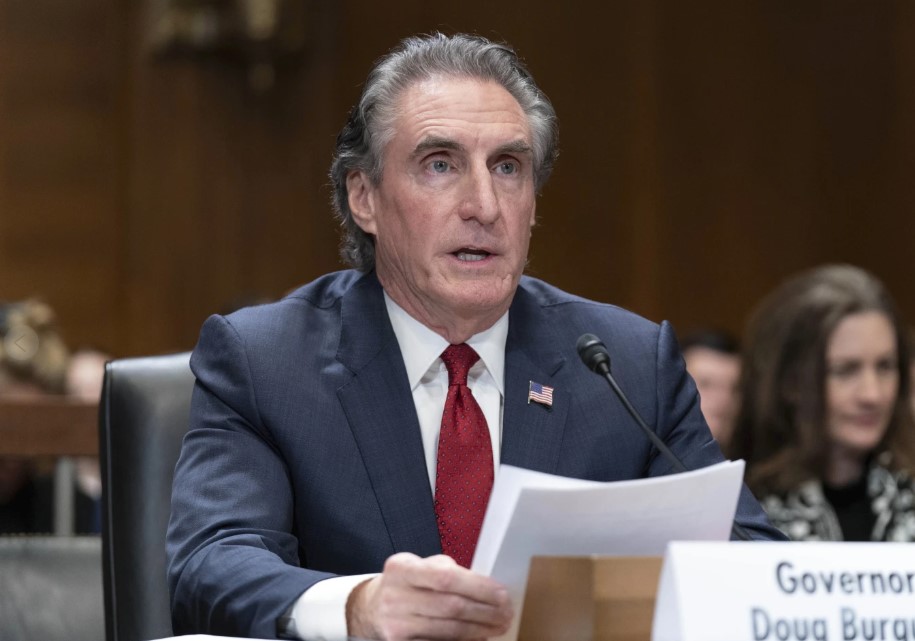Donald Trump’s nominee for Interior Secretary, Doug Burgum, spoke to a Senate panel about how the U.S. can use fossil fuels and other energy sources to help promote peace around the world. He also raised concerns about the reliability of renewable energy sources, like wind and solar power, which have been supported by President Biden.
Burgum, who is the former governor of North Dakota, explained that Trump’s goal of making the U.S. a leader in energy production could reduce the need for energy from countries with fewer environmental protections, such as Russia, Iran, and Venezuela. He also said the U.S. needs more reliable energy sources, like coal, to power industries like tech and data centers. Without these, Burgum warned, the U.S. might fall behind in the global race for artificial intelligence technology.
Senator Mazie Hirono from Hawaii disagreed, pointing out that military leaders see global warming as a threat that could cause instability and even wars. She expressed concern about increasing fossil fuel use, which contributes to climate change. When asked if he thought climate change was a problem, Burgum acknowledged that it is a global issue.
The Interior Department manages large areas of federal land and offshore territories, which produce a significant amount of the U.S. oil. While President Biden’s administration has slowed down oil and gas drilling to fight climate change, production still reached record levels due to high oil prices.
Burgum stated that if confirmed, he wouldn’t try to convince President Trump to support renewable energy like offshore wind. However, he said he would continue with wind projects that make sense.
Burgum, who built his wealth in the software industry, also mentioned that the U.S. could reduce carbon emissions from burning fossil fuels while still using them for energy production. Some people are skeptical about carbon capture technology, saying it hasn’t been proven on a large scale.
Burgum also discussed the management of federal lands, which includes wildlife conservation, national parks, and areas used for grazing, mining, and energy production. Senator Mike Lee of Utah raised concerns about national monuments like Bears Ears and Grand Staircase-Escalante, which were created against the wishes of state leaders. Burgum agreed with Lee that the original purpose of the Antiquities Act was to protect specific archaeological sites, not large areas of land. He emphasized the importance of balancing land protection with other uses, like recreation, logging, and energy production, to help local economies.


